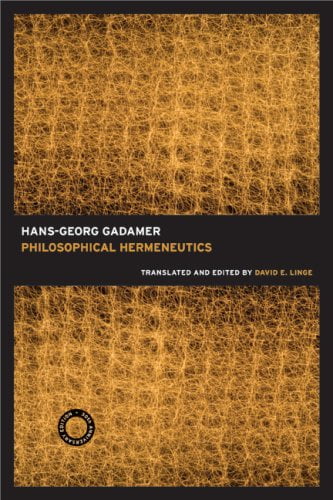
According to Hans-Georg Gadamer,
Prejudices [i.e., prejudgments] are not necessarily unjustified and erroneous, so that they inevitably distort the truth. In fact, the historicity of our existence entails that prejudices, in the literal sense of the word [i.e., prejudgments], constitute the directedness of our whole ability to experience. Prejudices are biases of our openness to the world. They are simply conditions whereby we experience something—whereby what we encounter says something to us.1
In his following discussion, Gadamer draws a helpful illustration from the process of language acquisition:
How does it happen that [words] are “words,” that is, that they have a general meaning? In his first apperception, a sensuously equipped being finds himself in a surging sea of stimuli, and finally he begins, as we say, to know something. Clearly we do not mean that he was previously blind. Rather, when we say “to know” [erkennen] we mean “to recognize” [wiedererkennen], that is, to pick something out [herauserkennen] of the stream of images flowing past as being identical.2
Even when language is acquired inductively, a judgment about meaning may develop from a “surging sea of stimuli,” but this sea itself does not “make sense” to the acquirer until the acquirer reflects on the sea in the context of this judgment—that is, until the judgment becomes prejudgment and allows the sea to speak sensibly.
Gadamer, Philosophical Hermeneutics (affiliate disclosure), 9. ↩
Gadamer, Philosophical Hermeneutics (affiliate disclosure), 14; brackets original. ↩
Leave a Reply